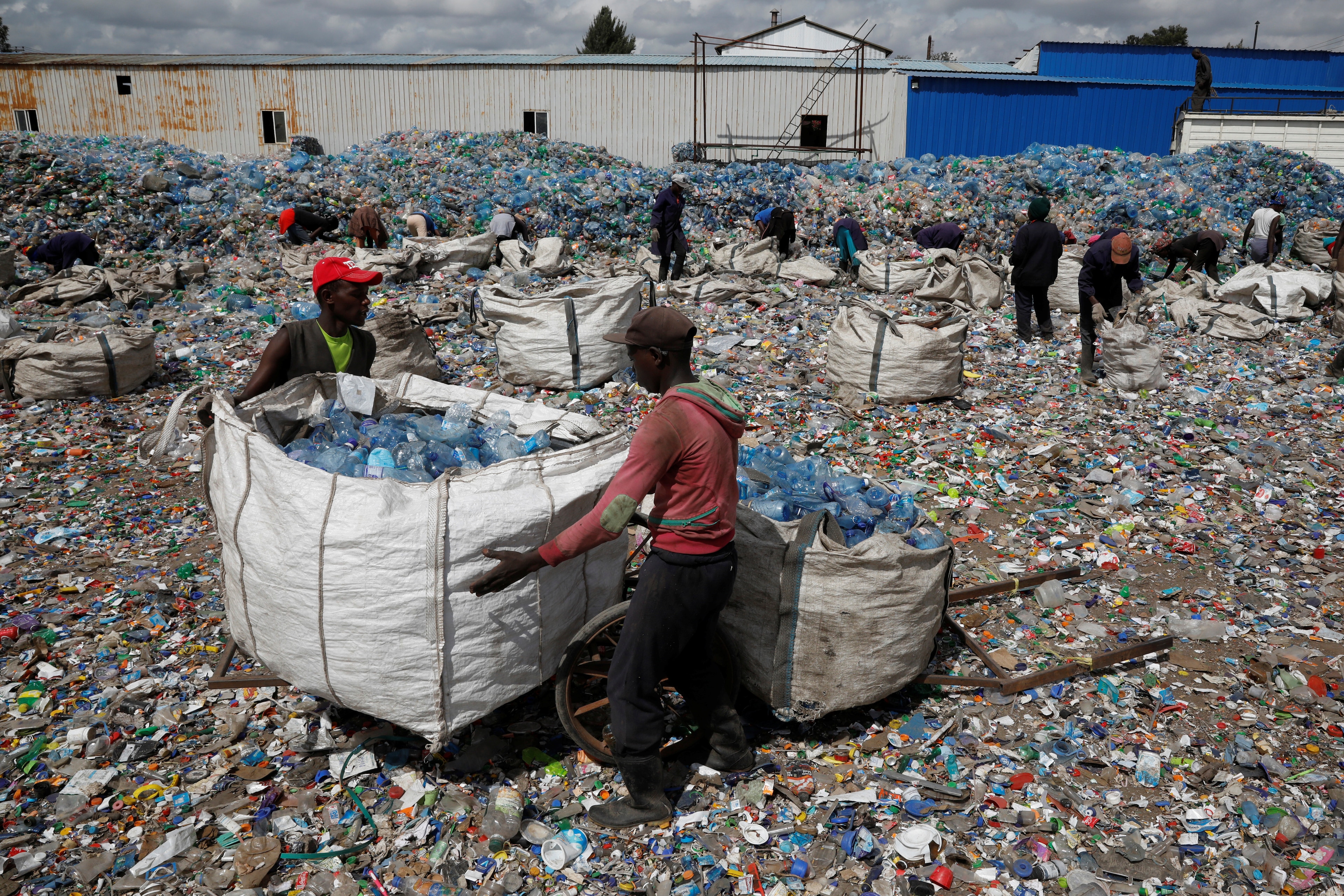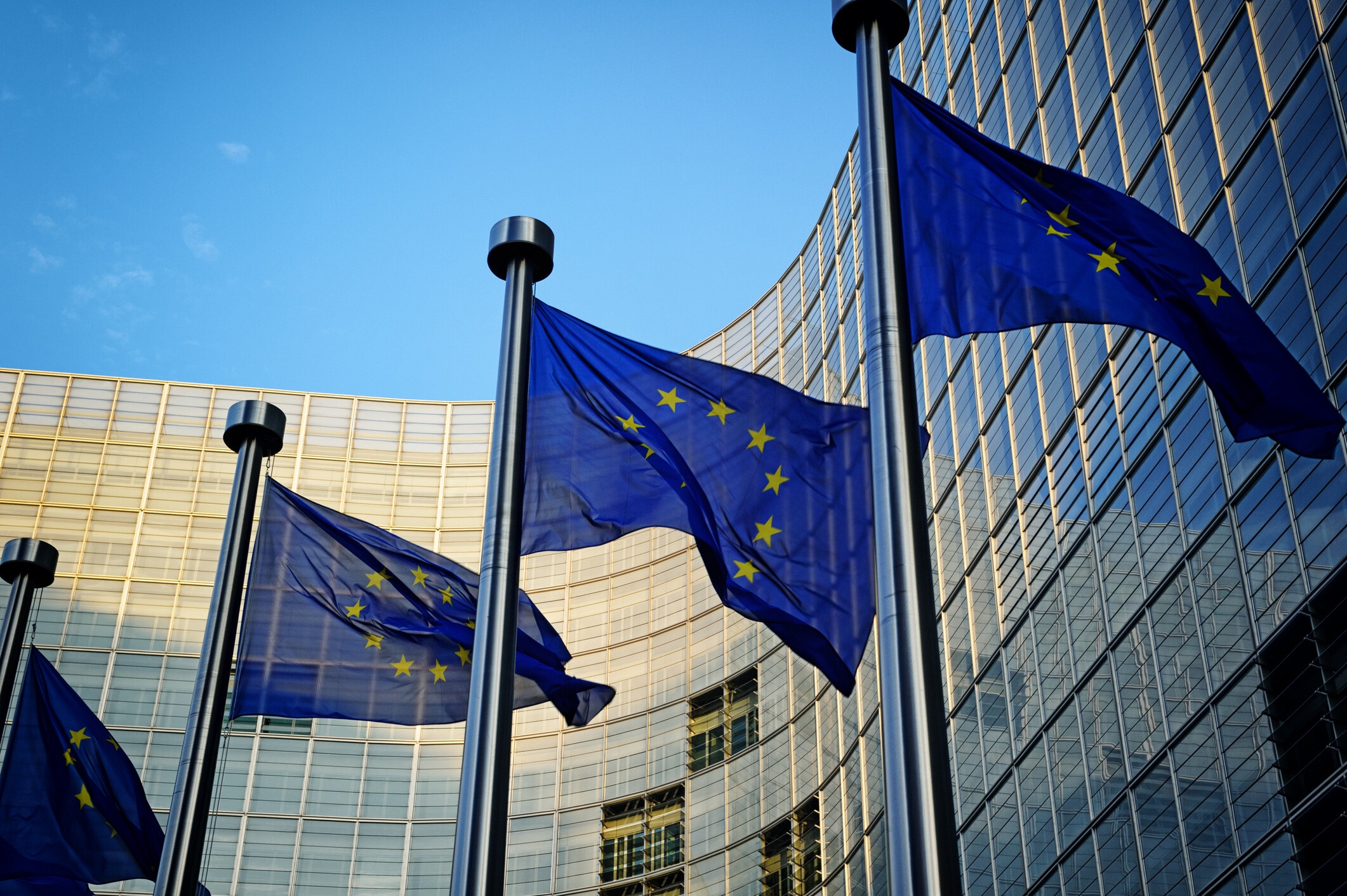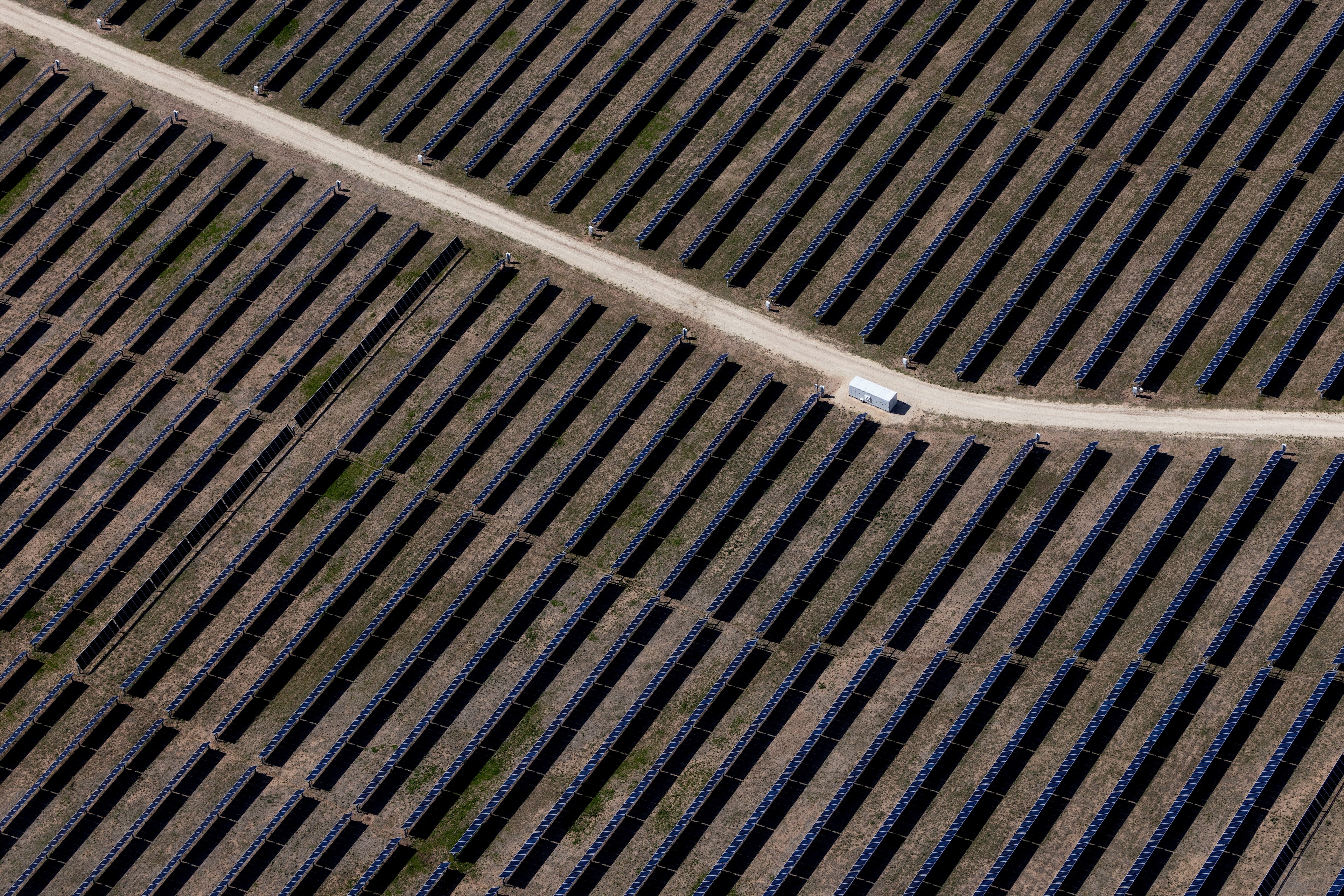This is what air pollution is doing to teenagers’ lungs, according to a chest surgeon

More than half a million children under five died in 2016 from respiratory infections caused by ambient and household air pollution, the WHO estimates.
Image: Lung Care Foundation
Stay up to date:
Global Health
Listen to the article
This article was first published in December 2022 and updated in March 2023.
- Dr Arvind Kumar set up the Lung Care Foundation in India, after seeing first-hand the growing impact of air pollution on patients’ lungs.
- The chest surgeon is on a mission to spread the message that pollution kills through the Doctors for Clean Air movement.
- In this edited interview with the World Economic Forum, Dr Kumar explains what air pollution does to human health - and how to tackle it.
As a chest surgeon who looks underneath the skin, inside people’s bodies, Dr Arvind Kumar has a unique perspective on life. But what he sees every day on the lungs of patients in his home country, India, is alarming.
“When I operate, even on children, I see black deposits. There is a sea change in the demography of lung cancer: from smoking, it is moving more and more towards air pollution.
“This is a very serious development: from the pink lungs that we are born with, due to the impact of pollution, they become black. And as a chest surgeon, I see them everyday when I operate on these lungs.”

And it’s not a new phenomenon. Dr Kumar started seeing black deposits on the lungs of non-smokers a decade ago. He was so concerned, in 2015, he set up the Lung Care Foundation, and the Doctors for Clean Air movement, to raise awareness of the impacts of air pollution and care for the ‘2.6 billion lungs in India’.
Air pollution: The silent killer
Air pollution is a silent killer that claims 7 million lives a year, according to the World Health Organization (WHO). But it’s particularly harmful to young children because they breathe faster, meaning they take in more pollutants, and their bodies are still developing.
More than half a million children under five died in 2016 from respiratory infections caused by ambient and household air pollution, the WHO estimates.
And the risks start in unborn children, with foetuses exposed to pollution in their mother’s womb.
In November 2022, a study published in Nature Communications found that in 2015, more than 40% of 2 million stillbirths in 137 countries - or more than 800,000 stillbirths - were the result of exposure to ambient fine particles (PM2.5) exceeding the WHO guideline of 10 μg/m3.
Two years before the global COVID-19 pandemic, the WHO held its first Global Conference on Air Pollution and Health, which launched with a report showing 93% of the world’s children under 15 are breathing such polluted air that their health and development is at risk.
Director-General Dr Tedros Adhanom Ghebreyesus said early exposure to air pollution was giving children a “life sentence of illness”.
It's a global problem. In 2020, nine-year-old Ella Kissi-Debrah, who had severe asthma, became the first person in the UK to have air pollution listed as a cause of death, after growing up exposed to traffic emissions with PM levels above WHO guidelines.
"Millions of people are killed every year through heart disease, stroke, cancer, pneumonia and other diseases since they breathe in polluted air every day," Dr. Maria Neira, WHO Assistant Director-General, a.i., Division of Universal Health Coverage & Healthier Populations told the World Economic Forum.
"Ambient air pollution in both cities and rural areas as well as dangerous levels of household air pollution due to inefficient fuels and devices for heating, lighting and cooking is posing a major threat to public health.
"This is not acceptable anymore. We need to accelerate the transition to clean and sustainable energy which will not only contribute to make people healthier, it will also protect our planet and mitigate the impacts of climate change."
A study in Sweden followed children from childhood into young adulthood. Published in January 2023 in the European Respiratory Journal, it found that improvements in air quality were connected to improvements in their lung function growth rate.
Here, Dr Kumar explains how air pollution impacts adults and children and what more can be done about this public health emergency.
How does air pollution affect people’s health?
Air pollution affects every cell in the human body. The portal of entry is the lungs. But after getting absorbed into the blood from there, from brain to toe, every organ of the body gets affected. In the lungs, the effect starts as soon as we are born and we start breathing polluted air. So these toxins I see, even in children, I see black deposits on the lungs of children and it goes on increasing with age.
When it reaches beyond a certain limit, the symptoms start and become more severe. They may range from brain symptoms like hyper-irritability, loss of memory and neuroinflammatory disorders, to various heart ailments like high blood pressure and heart attacks, to respiratory problems from asthma, pneumonia, COPD (Chronic obstructive pulmonary disease) and the dreaded lung cancer, which is now being linked to smoking as well as air pollution. Now there is a statement that diabetes may also be related to this as well as obesity. The Lung Care Foundation did a study in children in Delhi and found nearly 30% of the children having spirometry detected asthma and this is clearly the effect of air pollution.
How does air pollution actually kill people?
The impact of air pollution starts even before a child is born. There are studies available now which say that when a pregnant mother breathes polluted air, it causes deformities, growth retardation and even death in the foetus in the uterus. And this process continues after you are born. As you grow older, the tissues continue to get damaged. Initially you have diseases, then you have more severe disease and ultimately it results in death. So air pollution is responsible for a huge amount of disease, disability and finally death. And this is a scientific fact today that millions of people are dying.
But it's not a direct death. If air pollution causes lung cancer, you die of lung cancer, but you had lung cancer because you were exposed to air pollution. If you die of a stroke, if you die of a heart attack, or any number of other diseases, air pollution is a major contributing factor, which unfortunately today is not getting listed as a cause of death, but it needs to be highlighted. And doctors are in the best position to do that.
What's the World Economic Forum doing to tackle air pollution?
What changes have you seen throughout your career?
I've been operating on chests for over 30 years. Back when I started my journey, I used to see pink, normal lungs and black lungs only in smokers. But over the years, what I saw was that even non-smokers were having more and more black deposits. And my real turning point was around 2010, when I saw black deposits on the lungs of even teenagers. And that really horrified me.
I thought this is information that people are not privy to, because they cannot see what's happening inside their lungs and I was faced with this dilemma - whether to accept it or bring this information out in a public space. That's when we set up the foundation and we started sharing these pictures of the silent damage happening to your lungs inside your body.
It also horrifies me to see people in their twenties and thirties, non-smoking people, getting lung cancer today. Thirty years back, most of the patients were smokers. Today, more than 50% of my lung cancer patients are non-smokers. So this is the major change that has happened. And I think pollution has a huge role to play in this.
Is there a way to reverse the effects of air pollution?
Toxins, once deposited in the lungs, can never be removed. Similarly, toxins which have impacted other organs in the body also cannot be removed. Even if you stop the exposure, you can only prevent further progression. Whatever damage has occurred is irreversible, and that's the most important part that we have to prevent this damage from occurring, because once it has occurred, it's irreversible.
Are people aware of the damage air pollution is doing to their bodies?
Smoking was talked about a lot and therefore there was awareness. But a large number of people are still unaware that air pollution also causes that damage. I think it's an important task to make people understand that pollution impacts your body, badly. It causes retardation of growth in children and a whole lot of diseases in adults.
Information dissemination is one of the most important aspects of controlling this. Doctors can make a lot of difference because air pollution is not a chemical issue, it's a health issue. And who better to talk about health issues than the doctors who actually see the impact? So they are very motivated and they are in a position to influence the thinking of people.
We now feel it's time that Doctors for Clean Air goes beyond the boundaries of India and becomes a global movement. Once this becomes known across the globe, I think this issue will get the attention that it deserves.
Accept our marketing cookies to access this content.
These cookies are currently disabled in your browser.
What action is being taken globally to combat air pollution?
I think there is a lot of hope because there is so much talk. The United Nations has accepted clean air as a human right. That's a very major development. Governments across the world are focused on this issue. In India, we have a National Clean Air Programme where certain targets are being set for achieving the reduction in air pollution levels and I'm sure similar measures are being taken in countries across the globe.
But the only thing is, I think the problem is so serious that slow measures will not help. It's a serious matter and it needs a very major kind of surgery, on an urgent basis, to get immediate results. Because if we take a few decades to implement those decisions, it'll be too late for the generation which is getting exposed to polluted air today. So it's a medical emergency on a global basis and it needs to be tackled as an emergency.
We have more people dying of air pollution than have died of COVID. People need to prioritize: so there is health on the one hand and there is economic growth on the other hand, and health has to take priority. Of course, economic growth is important, progress is important, but health has to be kept at the centre of any development plan, any economic growth plan. If we keep health at bay, then things will not improve. And when I say health, it’s the health of people as well as the health of the planet. It's only when the mother planet is healthy that the people living on the planet will also be healthy.
Accept our marketing cookies to access this content.
These cookies are currently disabled in your browser.
Don't miss any update on this topic
Create a free account and access your personalized content collection with our latest publications and analyses.
License and Republishing
World Economic Forum articles may be republished in accordance with the Creative Commons Attribution-NonCommercial-NoDerivatives 4.0 International Public License, and in accordance with our Terms of Use.
The views expressed in this article are those of the author alone and not the World Economic Forum.
Related topics:
Forum Stories newsletter
Bringing you weekly curated insights and analysis on the global issues that matter.
More on Nature and BiodiversitySee all
Oliver Kade, Sarah Hadley and Judith Ketelslegers
July 28, 2025
Nasim Pour, Sebastien Cross and Joel Gould
July 28, 2025
Elena Raevskikh and Giovanna Di Mauro
July 23, 2025
Arunabha Ghosh and Jane Nelson
July 22, 2025
Sebastian Buckup and Beth Bovis
July 10, 2025








